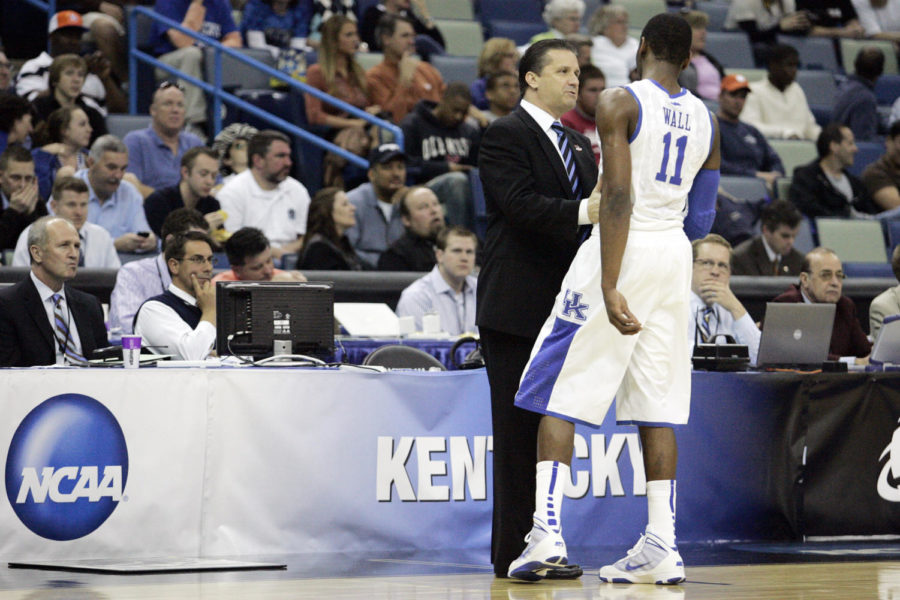Patterson School program simulation prepares students for real-life global crisis
University of Kentucky student Shannon Frazer, pictured in the Kernel office on 10/14/09. Photo by Ed Matthews
February 25, 2011
By global standards, Americans are strangers to crises.
Our nation is often perceived as being in its own little world. That is to our detriment.
As a result, many find it hard to grasp the gravity of unstable political situations — especially as of late — in areas like Tunisia, Egypt and Libya.
It’s downright ignorant to think these conflicts don’t affect us. I don’t pretend to know the intricacies of global cultural clashes, historical tensions and political motivations, but as a journalist, I recognize it is my responsibility to become an expert on these topics.
I’ll have the opportunity to orient myself to the global arena today and Saturday, as my media convergence class covers the UK Patterson School of Diplomacy and International Commerce global crisis simulation.
For those of you unfamiliar with the simulation, this year marks the eighth anniversary of the exercise. First-year Patterson School graduate students will play the roles of various nations’ diplomats, whose goal during a 24-hour session will be to address potential global disasters and threats.
“We tend to check with our contacts in Washington about the kinds of problems they are expecting and what they are worried about,” Patterson School Director Carey Cavanaugh said in a Feb. 24 UKNOW report. “From our discussions with the Pentagon, the State Department and academic think tanks, we come up with a scenario that might happen.”
My class will join up with other College of Communications classes to deliver updates via live blogs, Twitter, video clips, news releases and print stories, just like news venues would do in real times of emergency.
It will be a grueling process, but I’ll certainly be more aware of potential real-life disasters upon its completion. With the increasing instability engulfing countries abroad, the scenarios undoubtedly will be preparation for the graduate students as well.
I’m not just talking about warfare, either. Basic problems like the exploding human population and impending food shortages are already a concern, and perhaps should be moved up on Americans’ lists of global literacy to-dos.
A Feb. 20 article from Agence France-Presse — the world’s first international news agency — said the global population is expected to grow to 7 billion by the end of this year and predicts that by 2050, it will climb to 9 billion “with almost all of the growth occurring in poor countries, particularly Africa and South Asia.”
In the article, Jason Clay from the World Wildlife Fund said to accommodate all those people, “we will need to produce as much food in the next 40 years as we have in the last 8,000.”
And although incomes are expected to triple globally and quintuple in developing nations, this will “add more strain to global food supplies.”
The article said to combat this ensuing issue, governments and scientists need to start changing how and what food is produced now.
While population growth and dwindling food supplies may be the least of the Patterson School diplomats’ worries in the simulation, it is a very real danger.
Wake up, America. Learn about the world around you. With a little extra global awareness, the next impending danger could very well be a crisis averted.




























































































































































